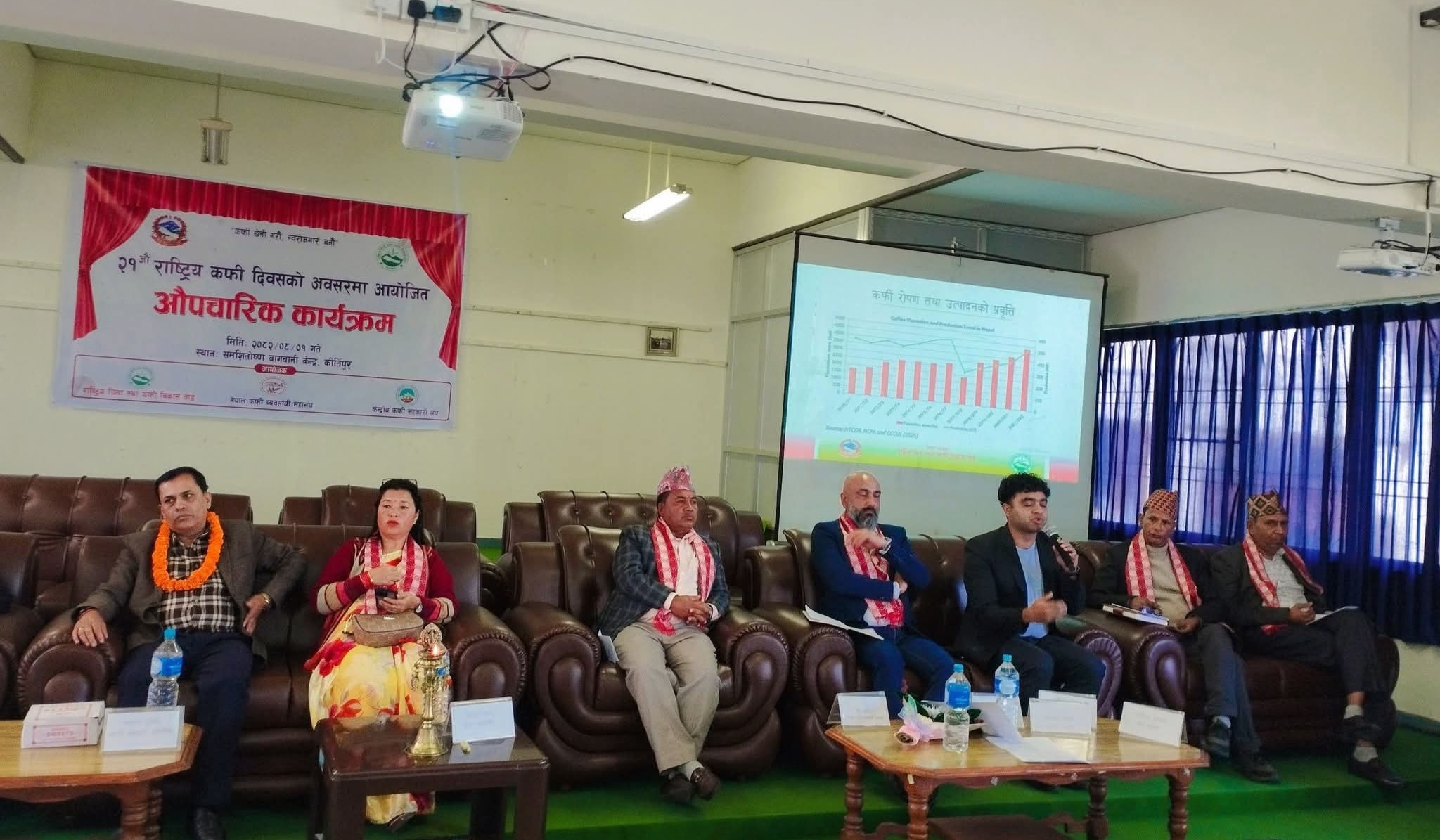Kathmandu, November 17, 2025
Nepal today celebrates National Coffee Day, highlighting the rising importance of coffee as a climate-resilient crop and a sustainable development opportunity for thousands of farmers across the country’s mid-hills.
What began decades ago as a small experiment in the hills of Gulmi has now become one of Nepal’s most promising high-value agricultural sectors. With over 4,000 hectares under cultivation and demand steadily increasing both domestically and internationally, coffee is emerging as a strategic crop for rural economies and environmental conservation.
A Climate-Friendly Crop Strengthening Hill Communities
Nepal’s coffee - predominantly high-altitude Arabica - is grown using low-input, eco-friendly, and often organic practices. These methods naturally support biodiversity, enrich soil health, and prevent erosion in fragile hill ecosystems.
For many smallholder farmers, coffee has become more than a crop:
a stable source of income,
a climate-resilient livelihood, and
a pathway to reducing out-migration.
Coffee-based agroforestry systems also help communities conserve local forests, making the crop an important ally in Nepal’s broader environmental commitments.
Opportunities Growing Faster Than Supply
Despite its potential, Nepal still cannot meet its own domestic coffee demand. Specialty “Himalayan coffee” enjoys rising recognition in international markets, but supply constraints, limited processing facilities, and inconsistent quality standards remain key challenges.
The National Tea and Coffee Development Board has reaffirmed its commitment to guaranteed minimum prices, ensuring farmers receive fair compensation and encouraging expansion of sustainable cultivation.
Development Gaps That Need Urgent Action
While enthusiasm for Nepali coffee is high, critical issues require long-term investment:
Improved Processing Infrastructure: More washing stations, quality dryers, and grading equipment.
Farmer Training: Skills in post-harvest handling, organic certification, and climate-smart cultivation.
Pest and Disease Management: Rising cases of coffee leaf rust and erratic climate impacts threaten yields.
Market Integration: Stronger value chains connecting small farmers to high-value domestic and export buyers.
Addressing these gaps is essential for Nepal to fully unlock the developmental and environmental promise of its coffee sector.
A Shared Vision for a Sustainable Coffee Production
On National Coffee Day, stakeholders across government, cooperatives, and the private sector are calling for a unified push toward growth anchored in sustainability. Investing in coffee estates, strengthening farmer cooperatives, ensuring fair-trade access, and engaging youth and women in coffee entrepreneurship are seen as key pathways.
A Bean With Bright Future
As Nepal celebrates National Coffee Day, coffee stands not just as a beverage - but as a symbol of hope.Hope for livelihood security, hope for green rural development,
and hope for a more climate-resilient future for Nepal’s hill communities.
With the right policies and sustained investment, Nepali coffee can become one of the country’s strongest contributors to both economic progress and environmental protection.